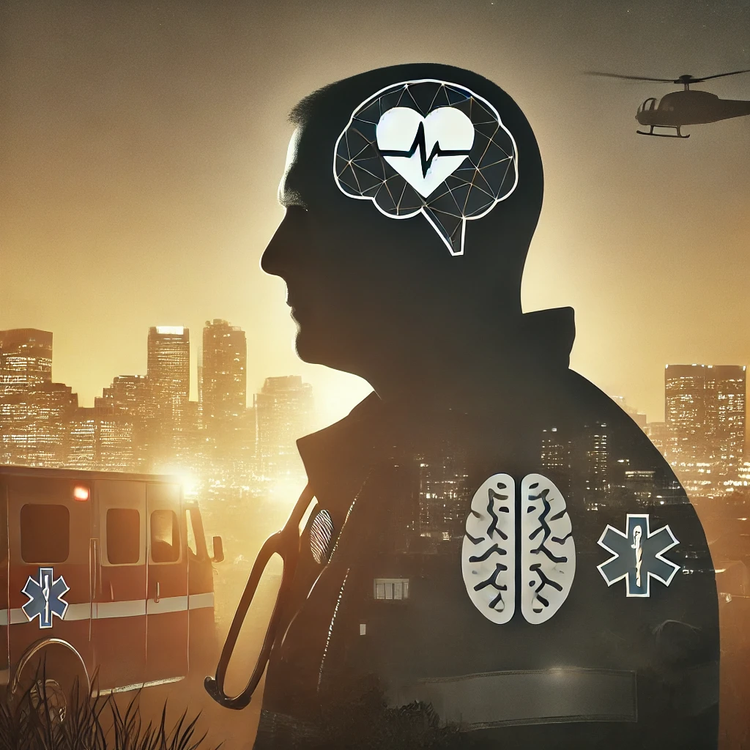The FDA, MDMA & PTSD...

The recent decision by the FDA to decline approval for MDMA-based therapy for PTSD is more than just a bureaucratic setback; it represents a missed opportunity for a breakthrough in the treatment of a condition that affects millions of people, myself included. As someone who lives with PTSD, I know firsthand how debilitating this condition can be and how the current treatment options often fall short. This is why the rejection of MDMA therapy is not just disappointing—it feels like a profound failure to address an urgent need in mental health care.
The Urgent Need for Breakthroughs in PTSD Treatment
PTSD is a complex and often misunderstood condition. It’s not just about reliving traumatic events; it’s about living in a constant state of hypervigilance, being haunted by memories that refuse to fade, and struggling to find peace in a world that feels perpetually unsafe. Traditional treatments, such as cognitive behavioral therapy (CBT) and medications like SSRIs, work for some, but many, including myself, find these options insufficient or ineffective. The reality is that PTSD is a deeply rooted condition that often requires more than just talk therapy or medication to manage (B Times Online)(WUNC).
This is why MDMA-assisted therapy represents such a crucial development. The early trials conducted by Lykos Therapeutics showed that MDMA, when administered in conjunction with talk therapy, could significantly reduce PTSD symptoms for many participants. This is not just about managing symptoms; it’s about potentially resolving the underlying trauma in a way that allows individuals to move forward with their lives. For someone who has struggled with PTSD for years, the possibility of such a treatment is nothing short of revolutionary (B Times Online)(Prairie Public).
A Personal Perspective on the Need for Innovation
Living with PTSD means constantly seeking ways to manage the condition. It’s about navigating a world that can trigger flashbacks and anxiety at any moment. The current treatments available have their place, but they often fall short of providing the relief that many of us desperately need. This is why the rejection of MDMA therapy feels so deeply personal. It’s not just another drug that didn’t make it through the approval process—it’s a potential lifeline that’s been delayed, and with it, the hope for a better quality of life (Prairie Public).
As someone who has experienced the limitations of current PTSD treatments, I can’t help but see the FDA’s decision as a significant setback. The data presented in the trials were promising, and while the FDA’s concerns about the trial design and long-term safety are valid, they should not overshadow the pressing need for new treatments. The risks associated with MDMA, particularly when used recreationally, are well-documented, but these risks can be managed in a controlled, therapeutic setting. The potential benefits of MDMA therapy far outweigh the risks, especially when considering the limited options currently available to those of us living with PTSD (WUNC).
The Ethical and Moral Imperative
There is an ethical and moral imperative to push forward with innovative treatments for PTSD. The condition is not just a mental health issue; it’s a public health crisis. PTSD affects millions of people, including a significant number of veterans who have served our country. For many, the condition is not just a source of distress—it’s a matter of life and death. The high rates of suicide among veterans with PTSD underscore the urgency of finding effective treatments (WUNC).
The FDA’s decision delays access to a treatment that could save lives. It forces those of us who suffer from PTSD to continue waiting, to continue searching for solutions in a landscape that has offered little in the way of new, effective treatments for decades. This is not just about following a cautious regulatory process—it’s about recognizing the human cost of inaction (Prairie Public).
Moving Forward: A Call for Change
The rejection of MDMA therapy should not be the end of the road for this promising treatment. Instead, it should serve as a catalyst for change in how we approach the approval of novel therapies, particularly those involving psychedelics. The FDA has the tools and pathways, such as accelerated approval and conditional approval, to make this therapy available while additional data is gathered. This would allow those of us who need it most to access a potentially life-changing treatment now, rather than years down the line (B Times Online).
to end this off, the way I see it, the FDA’s decision is a reminder of the challenges that come with integrating innovative treatments into the healthcare system. However, for those of us living with PTSD, it’s more than just a challenge—it’s a call to action. We need to push for faster, more flexible approval processes that prioritize the needs of patients. The potential benefits of MDMA therapy are too significant to be ignored, and the lives of millions depend on the continued pursuit of breakthroughs in PTSD treatment. As someone who has lived with this condition, I urge the FDA and the broader medical community to reconsider their approach and to recognize the critical need for new, effective treatments (WUNC).
Read More...
- Business Times, August 10, 2024. "FDA Rejects MDMA-Based PTSD Treatment, Citing Insufficient Clinical Data."
- Prairie Public Broadcasting, August 9, 2024. "FDA Gives Thumbs Down to MDMA for Now, Demanding Further Research."
- WUNC, August 9, 2024. "FDA Gives Thumbs Down to MDMA for Now, Demanding Further Research."

